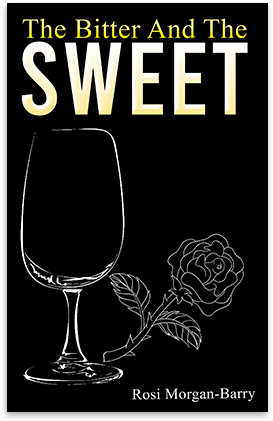
Anne’s Gothic Novel
(Sorting through old notebooks full of scribbled ideas for ‘The Bitter and the Sweet’ I discovered bits of the novel that for various reasons were omitted from the final version. One of these was ‘Anne’s Gothic Novel’ written when she was just ten years old and learning with her governess Serena Pop, who, no doubt, encouraged such creativity in her young pupil and would like her work to be universally acknowledged. So here it is, the spelling having been corrected by Miss Pope.)Melinda lived with her father in a crumbling castle on the edge of a dark forest. She had no mother, but did not feel the loss of such a person, as her father had always provided everything needful for her comfort and well-being.
Melinda and her father rode out every day to where he worked cutting and hauling logs, and sometimes making charcoal, for although they lived in a castle they were but poor folk who must work for their living. The father told his daughter tales of the forest and of the wolves and wild bears that roamed there.
‘But you must not be afraid of the wild beasts,’ he told her. ‘They will not harm you if you do not harm them, although they may snap and snarl if you come too near their little ones. They only seek to protect their young’.
‘As you do for me, Papa,’ Melinda answered, and indeed she remembered the occasion when she had been binding wild flowers into an ornament for their simple table and a wolf had trotted into the clearing. Her father had shouted and brandished his stick at the animal and it had slunk away.
‘Why did you not shoot the wolf, Papa? Melinda had asked, for her father, like all good woodmen, had his shotgun.
‘Never shoot unless there is real need, my daughter,’ he had answered gravely. ‘We do not need to kill for meat.’
Indeed they ate little meat, preferring to live on nuts, berries and fruits the forests provided, eggs from their hens and milk from their one milch cow.
But there was one animal her father taught her to beware, and that was Man.
‘An animal may attack out of fear or hunger, but there are Men who are more wild and lawless than the wild beasts. They will rob, steal or kill for no other reason than that it pleases them to do so. Of such, my daughter, |I pray you will never know.’
Alas, it was not to be. One day, Melinda had gone into the forest to search for her favourite hen, the best of layers. Returning later, having found the bird, she was astonished to see three burly men in the courtyard of the castle and seemingly carrying off some of the contents of the place. Melinda was alarmed, but not afraid, and instead of going off into a swoon as many another young lady would have done, and therefore being of no further use to anybody, she slipped quietly round a side path and entered the gunroom. She took her father’s spare gun from off its hook and quickly primed it ready for use. She then marched back to confront the three men.
They were at first greatly surprised to find themselves so confronted, but perceiving the bearer of the shotgun to be but a young maid, soon began to laugh and jeer. Melinda however was having none of it and commanded them to put down their burdens at once. This but made the men laugh all the more, at which Melinda carefully took aim at the one she judged to be the leader of the three, and fired. The shot took his hat clean off and bowled him over backwards; it also caused all the birds to rise in the air with a great to-do and commotion. Melinda quickly re-loaded and fired again, this time sending the shot whistling past the ear of the second man.
By now, Melinda’s father, having heard the shots, came running from the wood in time to see the three robbers running for their lives, having dropped all they had attempted to steal. He commended his daughter for her bravery and fine shooting and they lived happily together in the old castle to the end of their days.
Anne de Bourgh, age ten, wrote this with her own hand.
Post Views : 209